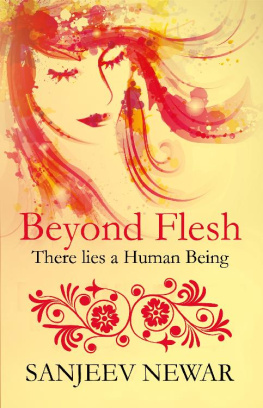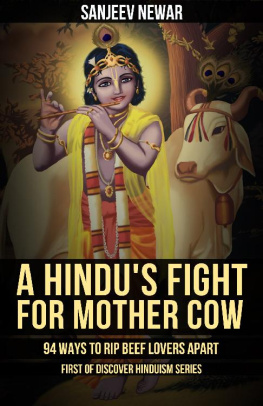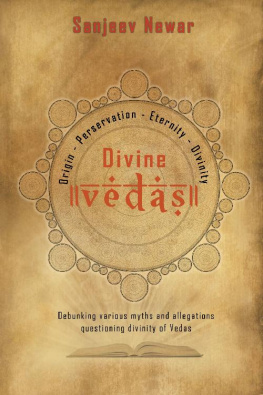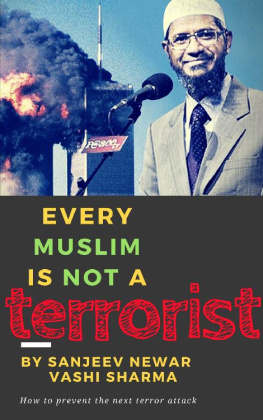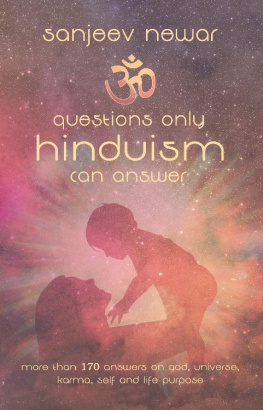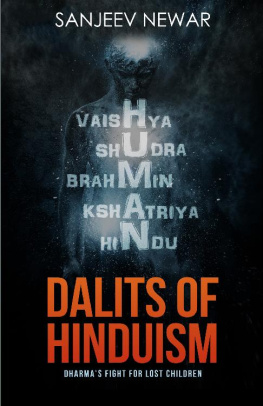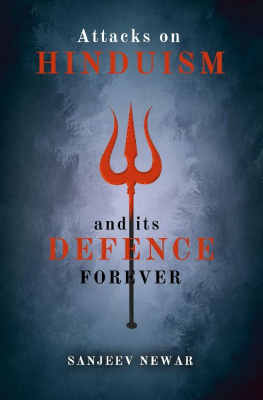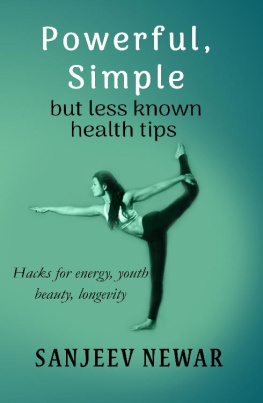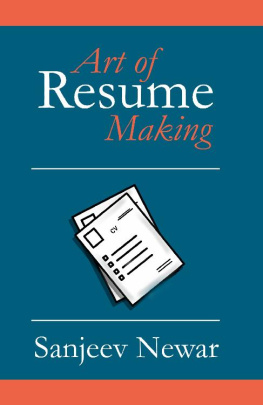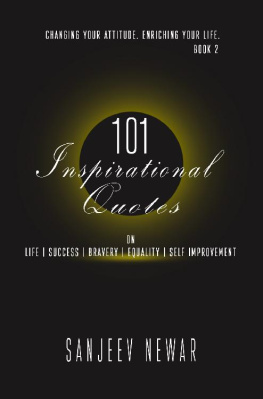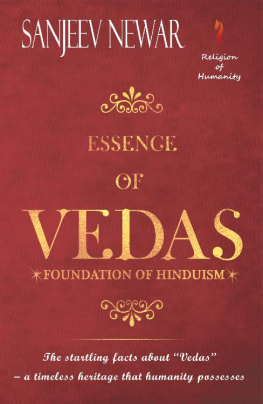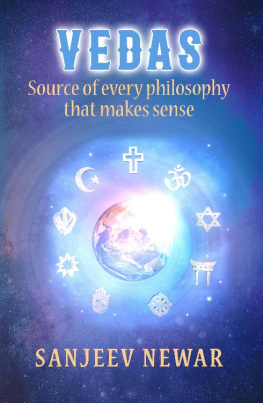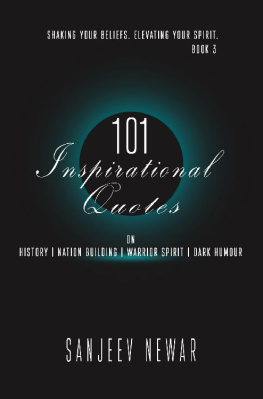Sanjeev Newar - Beyond Flesh There lies a Human Being (Discover Hinduism Book 3)
Here you can read online Sanjeev Newar - Beyond Flesh There lies a Human Being (Discover Hinduism Book 3) full text of the book (entire story) in english for free. Download pdf and epub, get meaning, cover and reviews about this ebook. publisher: Agniveer, genre: Romance novel. Description of the work, (preface) as well as reviews are available. Best literature library LitArk.com created for fans of good reading and offers a wide selection of genres:
Romance novel
Science fiction
Adventure
Detective
Science
History
Home and family
Prose
Art
Politics
Computer
Non-fiction
Religion
Business
Children
Humor
Choose a favorite category and find really read worthwhile books. Enjoy immersion in the world of imagination, feel the emotions of the characters or learn something new for yourself, make an fascinating discovery.
- Book:Beyond Flesh There lies a Human Being (Discover Hinduism Book 3)
- Author:
- Publisher:Agniveer
- Genre:
- Rating:5 / 5
- Favourites:Add to favourites
- Your mark:
- 100
- 1
- 2
- 3
- 4
- 5
Beyond Flesh There lies a Human Being (Discover Hinduism Book 3): summary, description and annotation
We offer to read an annotation, description, summary or preface (depends on what the author of the book "Beyond Flesh There lies a Human Being (Discover Hinduism Book 3)" wrote himself). If you haven't found the necessary information about the book — write in the comments, we will try to find it.
Beyond Flesh There lies a Human Being (Discover Hinduism Book 3) — read online for free the complete book (whole text) full work
Below is the text of the book, divided by pages. System saving the place of the last page read, allows you to conveniently read the book "Beyond Flesh There lies a Human Being (Discover Hinduism Book 3)" online for free, without having to search again every time where you left off. Put a bookmark, and you can go to the page where you finished reading at any time.
Font size:
Interval:
Bookmark:
Beyond Flesh
There lies a Human Being
Beyond flesh there lies a human being
Copyright 2016 by Agniveer
All rights reserved. This publication may not be reproduced, stored in a retrieval system, or transmitted in whole or in part, in any form or by any means, electronic, mechanical, photocopying, recording, or otherwise, without the prior written permission of Agniveer.
This publication is designed to provide accurate and authoritative information in regard to the subject matter covered.
For information contact
books@agniveer.com
Book Design and Composition by Ronak Trivedi
First Edition: December 2016
Beyond Flesh
There lies a Human Being
Sanjeev Newar
There are two core tenets of Hinduism, which put women on the highest pedestal.
- Matruvat Paradareshu All women should be respected as a mother.
- The society that does not provide respect and dignity to women faces miseries and failures.
In Hinduism, the woman is praised as Saraswati source of knowledge, Sahasraveerya epitome of courage and patience and Usha the first rays of hope and enlightenment.
In spite of these extolled teachings of Vedas, a great deal of time and energy is being wasted by Hinduism bashers globally to find the verses from various Hindu texts like Ramayana, Mahabharata, Puranas, Manu Smriti, etc. denigrating women. I used the phrase a great deal of time and energy is being wasted because, except Vedas, none of these texts form the foundation of Hinduism. From the time of their creation by our great sages (Rishis), all of the above texts have gone through various kinds of adulterations just like Bible or Quran. Hence, none of the above texts holds ultimate authority over Hinduism. Only Vedas have exclusive authority over Hinduism. Therefore, any effort made by Hinduism haters to denigrate Hinduism, by giving references from above texts, simply shows their own level of ignorance about Hinduism!
On top of that, the irony of this whole situation is that the one group of bashers who criticize Hinduism for not giving due respect to women proudly belongs to a cult which considers woman half intelligent than man and does not give women equal rights in society as well as in the family. The other so-called modern group of Hinduism bashers influenced by western philosophies, who keeps talking about respecting women, actually encourage women to be part of glamor industries so that they can be entertained by them.
This book, which silences Hinduism bashers, is the part of Discover Hinduism series, has been developed as a result of years of extensive research on four Vedas.
However, the purpose of writing this book is not just to silence Hinduism bashers, but also to make the world aware of the place of women in the timeless heritage of humanity called Hinduism. And most importantly, toinspire women to realize their true potentials - character, kindness, knowledge, care, and valor - and make them work accordingly.
All proceeds from this book will go towards empowerment of women.
Sanjeev Newar
December 2016, New Delhi
Table of Contents
Chapter 1
W omen are accorded the greatest respect in Vedas. No religion, philosophy or even modern feminism can match the same. Still, ignorant semi-literate communists keep propagating the false propaganda that Vedas demean women. To silence them and to establish the truth we have presented here verses from Vedas obtained from texts of most learned scholars in this field.
Atharvaveda 11.5.18: In this mantra of Brahmacharya Sukta, it is emphasized that girls too should train themselves as students and only then enter into married life. The Sukta specifically emphasizes that girls should receive the same level of training as boys.
Girls should train themselves to become complete scholars and youthful through Brahmacharya and then enter married life.
Atharvaveda 14.1.6: Parents should gift their daughter intellectuality and power of knowledge when she leaves for husbands home. They should give her a dowry of knowledge.
When girls ignore external objects and develop foresight and vibrant attitude through the power of knowledge, she becomes a provider of the wealth of skies and earth. Then she should marry an eligible husband.
Atharvaveda 14.1.20: Oh wife! Give us discourse of knowledge.
The bride may please everyone at her husbands home through her knowledge and noble qualities.
Atharvaveda 7.46.3: Teach the husband ways of earning wealth.
Protector of children, having definite knowledge, worth thousands of prayers and impressing all directions, O women, you accept prosperity. O wife of deserving husband, teach your husband to enhance wealth.
Atharvaveda 7.47.1: Oh woman! You are the keeper of knowledge of all types of actions (karma).
O woman, you provide us wealth and prosperity.
Atharvaveda 7.47.2: Oh woman! You know everything. Please provide us the strength of prosperity and wealth.
O woman! You enhance our wealth and prosperity.
Atharvaveda 7.48.2: Oh woman! Please provide us with wealth through your intellect.
Scholarly, respectful, thoughtful, happy wife protects and enhances wealth and bring happiness in the home.
Atharvaveda 14.1.64: Oh woman! Utilize your Vedic intellect in all directions of our home!
O bride! Reach the home of scholars and bring bliss and happiness by ruling your home.
Atharvaveda 2.36.5: Oh bride! Step into the boat of prosperity and take your husband beyond the ocean of worldly troubles into realms of success.
O bride! Step into the indestructible boat of prosperity and take your husband to shores of success.
Atharvaveda 1.14.3: Oh groom! This bride will protect your entire family.
O groom! This bride is the protector of your entire family. May she dwell in your home for a period and sow seeds of intellect.
Atharvaveda 2.36.3: May this bride become the queen of the house of her husband and enlighten all.
Atharvaveda 11.1.17: These women are pure, sacred and Yajniya (as respected as yajna); they provide us with subjects, animals, and food.
These women are pure, sacred, worth being worship, worth being served, of great character, and scholarly. They have given subjects, animals, and happiness to the entire society.
Atharvaveda 12.1.25: Oh motherland! Give us that aura which is present in girls.
May we have the same aura and prosperity as in women!
Atharvaveda 12.2.31: Ensure that these women never weep out of sorrow. Keep them free from all diseases and give them ornaments and jewels to wear.
Atharvaveda 14.1.20: O wife! Become the queen and manager of everyone in the family of your husband.
Atharvaveda 14.1.50: O wife! I am holding your hand for prosperity.
Atharvaveda 14.1.61: O bride! You shall bring bliss to all and direct our homes towards our purpose of living.
Atharvaveda 14.2.71: O wife! I am knowledgeable, and you are also knowledgeable. If I am Samveda, then you are Rigveda.
Atharvaveda 14.2.74: This bride is illuminating. She has conquered everyones hearts!
Atharvaveda 7.38.4 and 12.3.52: Women should take part in the legislative chambers and put their views on the forefront.
Rigveda 10.85.7: Parents should gift their daughter intellectuality and power of knowledge when she leaves for husbands home. They should give her a dowry of knowledge.
Rigveda 3.31.1: The right is equal in the fathers property for both son and daughter.
Next pageFont size:
Interval:
Bookmark:
Similar books «Beyond Flesh There lies a Human Being (Discover Hinduism Book 3)»
Look at similar books to Beyond Flesh There lies a Human Being (Discover Hinduism Book 3). We have selected literature similar in name and meaning in the hope of providing readers with more options to find new, interesting, not yet read works.
Discussion, reviews of the book Beyond Flesh There lies a Human Being (Discover Hinduism Book 3) and just readers' own opinions. Leave your comments, write what you think about the work, its meaning or the main characters. Specify what exactly you liked and what you didn't like, and why you think so.

